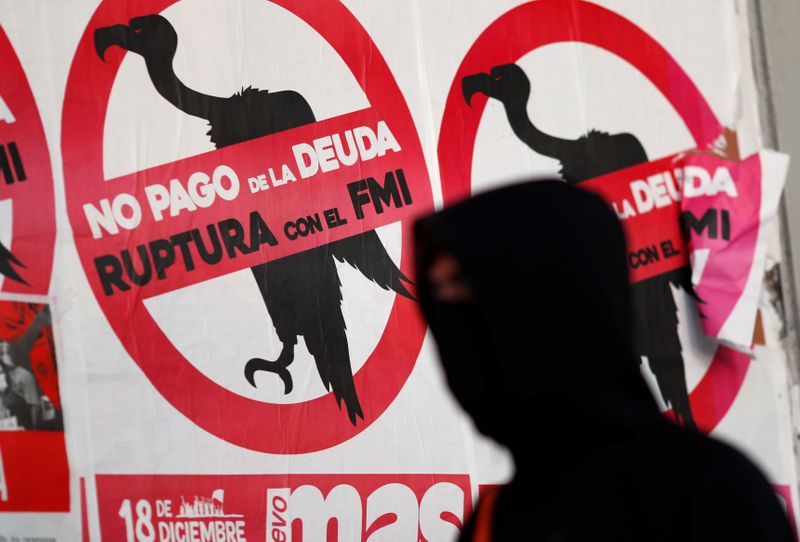By Rodrigo Campos and Tom Arnold
NEW YORK/LONDON (Reuters) - A group of Argentina's creditors has contacted the Institute of International Finance and other global bodies for support to amend legal clauses in its sovereign bond restructuring, a spokesman for the organisation said.
Buenos Aires is trying to clinch a deal to restructure around $65 billion in foreign debt by Tuesday, though it is likely to push that deadline back after bondholders grouped behind a counter-proposal, causing an impasse in talks.
Specific details of what creditors are seeking the support of the organisations on was unclear.
But collective action clauses (CACs), which determine the requirements for any future changes made to the bond agreements, are a key issue in the negotiations.
The bondholders, including BlackRock (NYSE:BLK), Ashmore and Fidelity Management and Research, also made informal contact with the International Monetary Fund, U.S. Treasury and the International Capital Market Association, a creditor source told Reuters.
The IMF, U.S. Treasury and ICMA did not immediately respond to requests for comment.
Although these organisations have no control over how bond contracts are structured, the creditors hope that their support would help to persuade Argentina's Economy Minister Martin Guzman to agree to changes they want.
Guzman said on Thursday that the government's proposal was the maximum effort it could make, but that there was the "possibility for innovations" with legal clauses, but only with international backing.
"That's not a matter for Argentina and a subset of creditors to decide," he said during an online conference.
Argentina is pushing for enhanced CACs, which allow borrowers to bundle together multiple bonds, making it even harder for minority hold-outs pushing for a better deal to disrupt the process. Enhanced CACs require a single threshold for approval, generally set at 75%.
Creditors are worried the government will use the CACs to adopt the "Pac-Man" strategy of attempting to get them on board one at a time.
News of the bondholders' contact efforts was first reported by Bloomberg.
